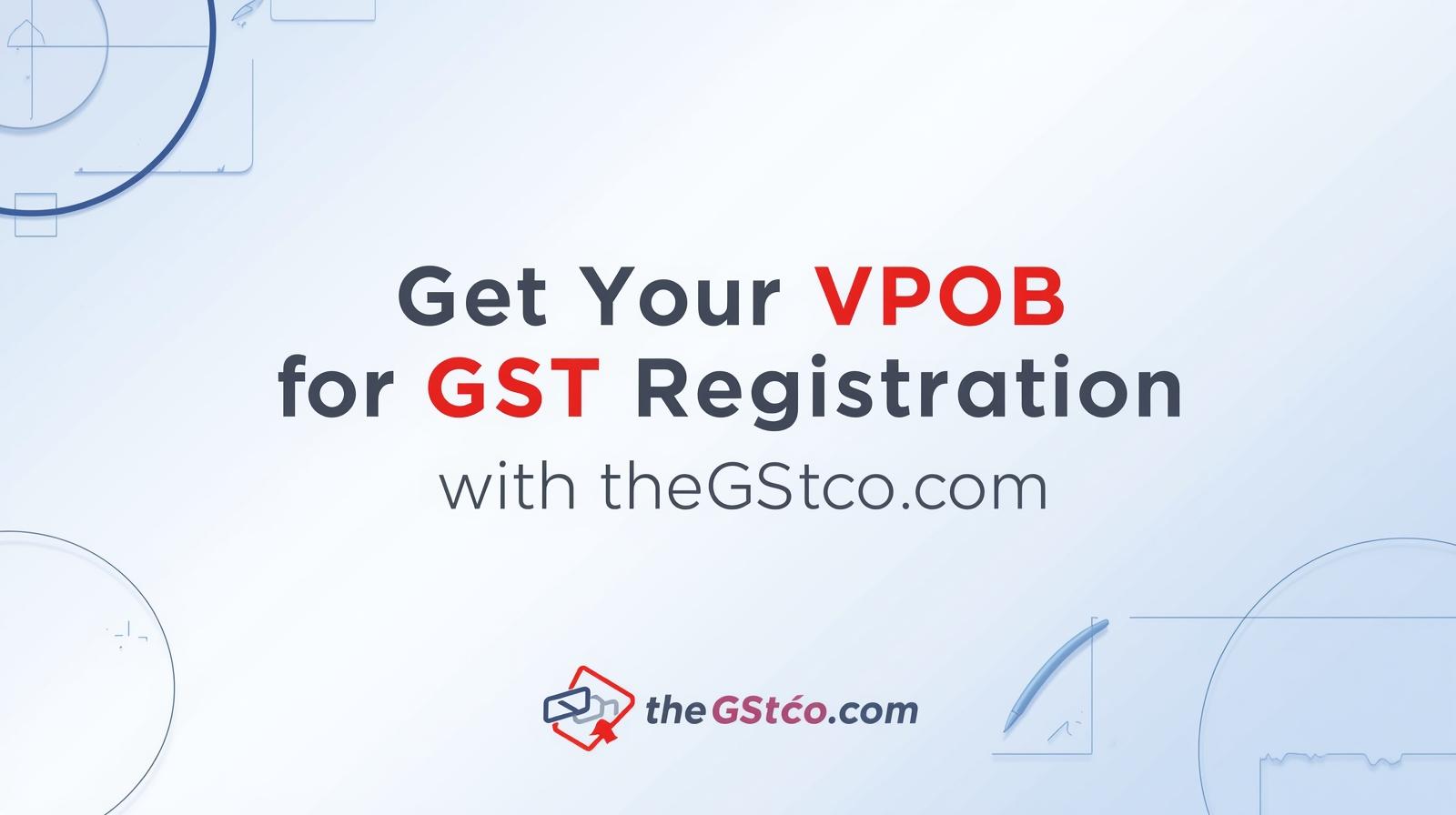Common Mistakes to Avoid During GST Application: A Practical Guide to VPOB for GST Registration
Registering your business under the Goods and Services Tax (GST) is a crucial step toward establishing your company’s legitimacy. However, many first-time business owners make small but costly mistakes that can delay or even reject their application. With the growing popularity of VPOB for GST Registration (Virtual Place of Business), understanding the process thoroughly is now more important than ever.
A VPOB provides a virtual business address that allows you to register for GST without needing a physical office space. It’s a convenient solution for online sellers, freelancers, and startups that operate remotely. But while this method simplifies GST registration, small oversights can still lead to unnecessary complications. Below are some common errors to avoid when applying for GST using a VPOB.
Providing Wrong or Incomplete Information
One of the biggest reasons for GST application rejections is inaccurate or incomplete information. Even a tiny mistake — like a misspelled business name, wrong PAN details, or mismatched address — can lead to verification failure.
When registering through a VPOB, make sure every detail in your documents matches your GST application. The rent agreement, NOC, and utility bill must display the same address as entered in the form. Double-check all entries before submitting to avoid unnecessary rejections or delays.
Using an Invalid or Unverified Address
Submitting an invalid address is another common error. The GST department requires a legitimate business location supported by proper documentation. When using a VPOB for GST Registration, your provider must supply valid proof like a registered rent agreement, owner’s NOC, and recent utility bill.
Avoid extremely low-cost or unverified providers. Many of them use the same address repeatedly, leading to applications being flagged or rejected. Always choose a verified provider offering recognized business addresses across multiple cities.
Uploading Poor-Quality Documents
Many GST applications get stuck because of unclear or incomplete document uploads. Officers need to verify every detail clearly, and blurry or cropped images make this difficult.
Always scan and upload high-resolution, full-page documents. Reputed VPOB providers usually offer digital copies ready for submission, making the process smoother and faster.
Selecting the Wrong Business Type
Another frequent mistake is choosing the wrong business category. For example, an individual freelancer may register as a company, or an online seller might forget to indicate that they sell through platforms like Amazon or Flipkart.
Identify your correct business structure before applying. If unsure, consult your VPOB for GST Registration provider or a GST professional to select the right category for your business model.
Forgetting to Include All Business Locations
Many applicants register only their main office and forget to add warehouses, storage spaces, or fulfillment centers. This can cause issues later during inspections or audits.
If your business operates in more than one state, you must apply for GST registration separately for each location. Having a VPOB in multiple states helps you stay compliant without the need to rent physical spaces.
Missing Authorization Letter
The authorization letter is a key part of the GST application process, but many applicants forget to attach it or upload an incorrect version. Without it, the GST officer cannot verify your authority to apply, causing delays or rejection.
Most professional VPOB providers include a pre-approved authorization letter format. Just fill in your details, sign, and upload it along with your documents.
Not Responding to GST Queries
After submitting your application, the GST officer may raise queries or request additional information. Ignoring these notifications or responding late often leads to automatic rejection.
Regularly check your GST portal and registered email for updates. A reliable VPOB provider usually assists clients in replying promptly to such queries, ensuring faster approval.
Choosing an Unreliable VPOB Provider
One of the costliest mistakes is selecting a non-compliant VPOB provider. Some offer reused or unregistered addresses, or provide incomplete paperwork. Using such services can lead to your GST number being suspended in the future.
Always verify that your provider offers legitimate, government-approved addresses with proper documents — rent agreement, NOC, and utility bill. A trusted VPOB for GST Registration provider ensures your registration is valid and compliant.
Ignoring Post-Registration Requirements
Getting your GST certificate doesn’t end your responsibilities. Many business owners fail to keep their VPOB-related documents safe, which are later required during audits or inspections.
Maintain both digital and printed copies of all your GST and VPOB documents. Proper recordkeeping helps you stay compliant and prepared for any future verification.
Conclusion
GST registration can be smooth and hassle-free if done carefully. Most issues arise from small errors like incorrect information, poor document quality, or unreliable address proofs. Paying attention to these details saves time and prevents unnecessary stress.
Choosing a trusted VPOB for GST Registration simplifies the process for startups, online sellers, and small businesses that don’t need physical offices



